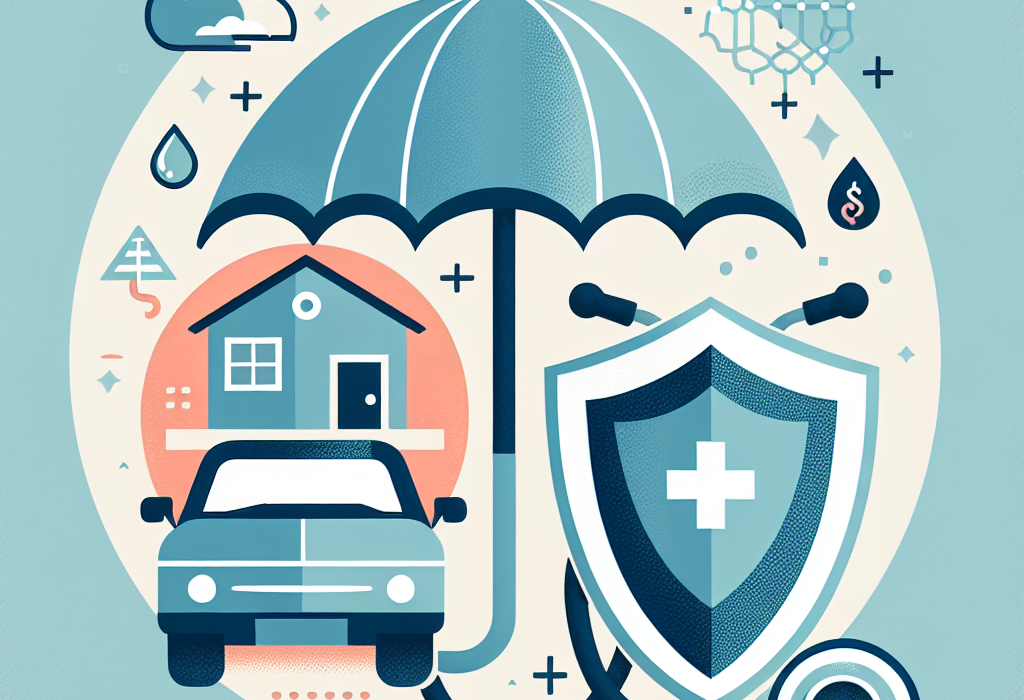Life is full of uncertainties, and while we can’t predict every curveball that’s thrown our way, we can protect ourselves and our loved ones from potential financial crises. Insurance, a contract between an individual or entity and an insurance company, serves just this purpose. It provides a financial safety net against a wide array of risks, such as natural disasters, illnesses and accidents, theft, property damage, and even death. In this article, we’ll explore the three most critical forms of insurance coverage: auto, home, and health.
Auto Insurance
Auto insurance is an essential legal requirement for every driver. This policy covers the financial cost associated with auto accidents, theft, and other vehicle-related incidents. Some of the primary categories of auto insurance coverage include Liability Coverage, Collision Coverage, Comprehensive Coverage, Personal Injury Protection, and Uninsured/Underinsured Motorist Protection.
In most regions, Liability Coverage is mandatory. It covers the costs you’re legally responsible for if you’re at fault in an accident. Collision Coverage pays for the repair or replacement of your vehicle following an accident, irrespective of who was at fault, while Comprehensive Coverage provides protection against incidents other than collision, such as theft or damage caused by natural disasters.
Home Insurance
Home insurance, also known as homeowners insurance, provides a comprehensive protection plan for your home and personal belongings. It typically covers damage to the home, loss or damage to personal belongings, and personal liability for injuries or damages that occur on your property.
The primary components of a standard home insurance policy include Dwelling Coverage, Other Structures Coverage, Personal Property Coverage, and Liability Coverage. Dwelling Coverage takes care of the costs associated with repairing or replacing your home due to covered risks. Other Structures Coverage covers detached buildings on your property, like garages or sheds, while Personal Property Coverage protects your personal belongings against theft or damage.
Health Insurance
Health insurance is arguably the most critical insurance policy you can secure. It covers the cost of medical and surgical expenses, prescriptions, hospital stays, and oftentimes, preventive care. Many countries have a national healthcare system, but in places where this isn’t in place, such as the United States, it’s crucial to have a private health insurance policy.
Key components of most health insurance plans are Premiums, deductible, copayments, and Out-Of-Pocket Maximums. The premium is the amount you pay to the insurance company monthly or yearly to keep the policy active. Deductibles are what you pay before your insurance starts to pay, while copayments are the amount you pay for each visit or prescription. The Out-Of-Pocket Maximum is the most you could pay for covered services in a year.
Conclusion
Auto, home, and health insurances are fundamental protections that provide financial relief in the face of potential calamities. These comprehensive insurance solutions offer protections tailored to different aspects of our lives, from everyday driving to our health and homes. Consulting with an insurance expert can help you get the right coverage that best fits your specific needs and budget.
FAQs
1. Why is insurance important?
Insurance is crucial in providing a safety net against unexpected financial burdens due to accidents, health issues, property damage, and more.
2. What is the difference between auto insurance and home insurance?
Auto insurance primarily covers risks related to automobiles, such as accidents and theft. On the other hand, home insurance focuses on damages to a home or personal belongings.
3. Can I decide not to have health insurance?
While it’s legal to not have health insurance in some countries, doing so can expose you to substantial financial risk in case of sudden health problems.
4. How much insurance coverage do I need?
The amount of coverage needed usually varies based on individual circumstances. Financial advisors or insurance experts can help determine the level of coverage most suitable for you.
5. Can an insurance company refuse to pay out a claim?
Under certain circumstances, an insurer may deny a claim. Some reasons for this include non-disclosure of information or if the insured event wasn’t included in the policy.













